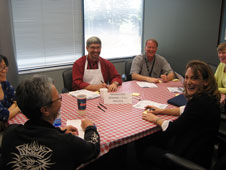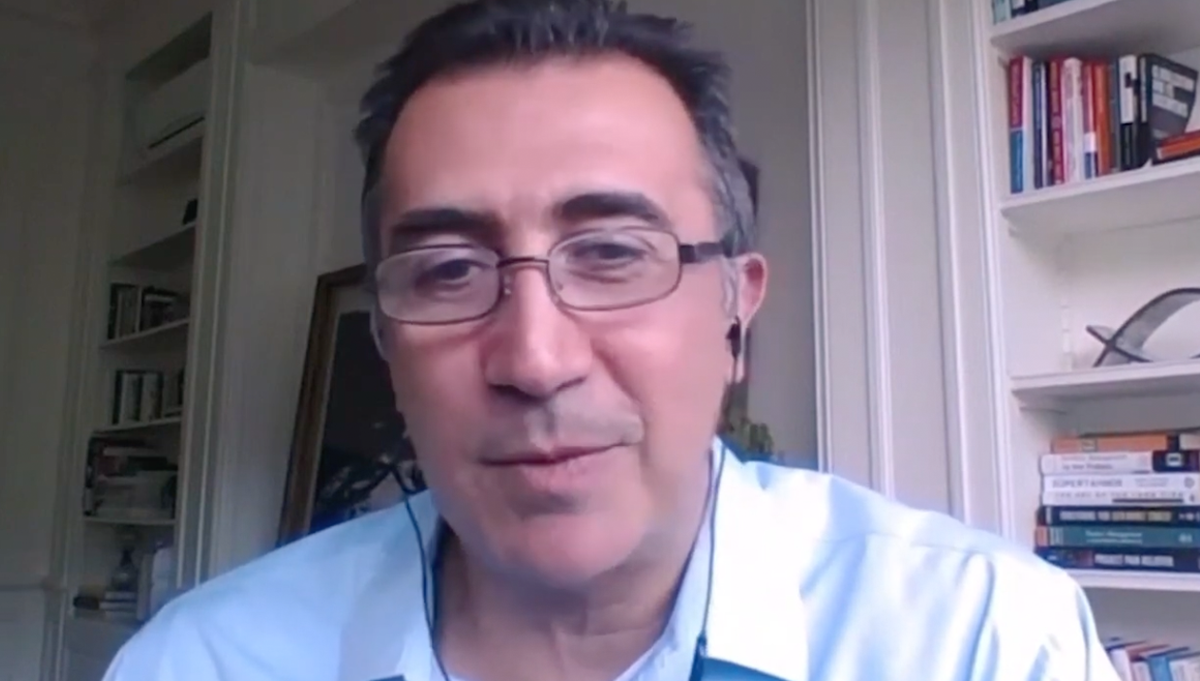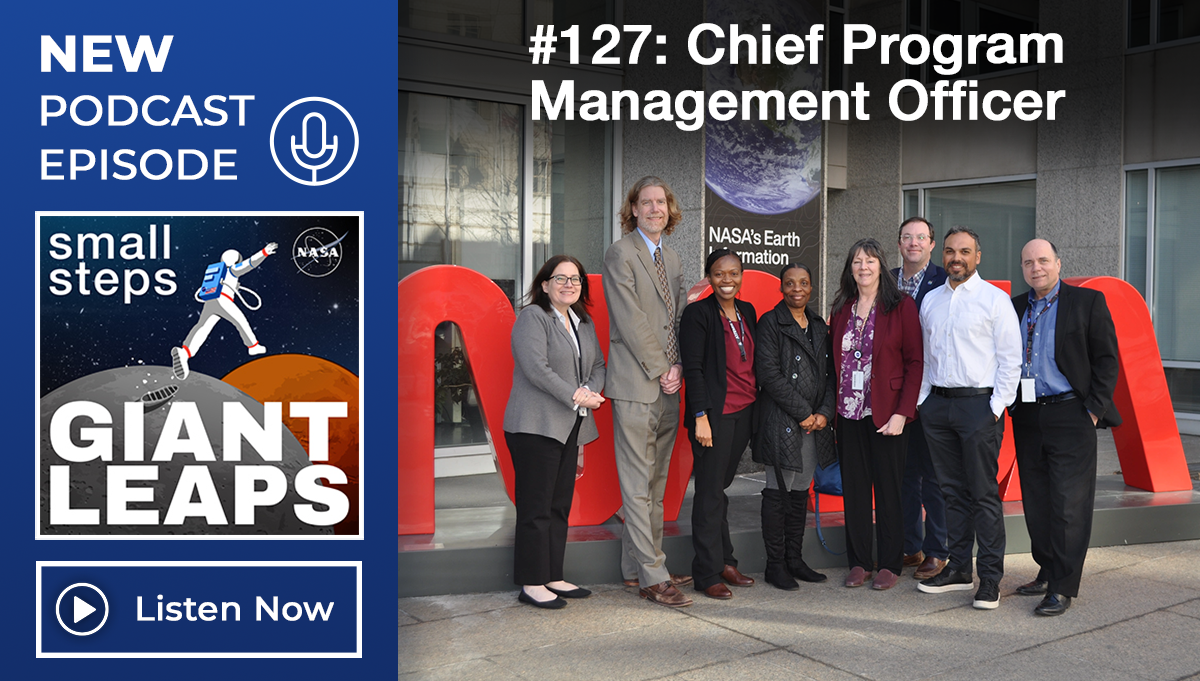June 30, 2010 Vol. 3, Issue 6
The Exploration Systems Mission Directorate (ESMD) conducted a workshop to enhance the knowledge capture processes for the Constellation Program.

Tom McInnis leads the “Knowledge Demand/Pull Process” table at ESMD’s Knowledge Café in Huntsville, AL. Credit: NASA/Dave Lengyel
ESMD hosted a three-day workshop, using the “knowledge café” approach, on May 4-6, 2010, at Marshall Space Flight Center to develop its active knowledge capture plan for the Constellation Program. Attendees included representatives from Constellation, Ares, Orion, Ground Operations, Lunar Surface Systems, Altair, and Space Shuttle.
The first session opened with insights from three knowledge management experts: Ed Hoffman, Director of the Academy of Program/Project & Engineering Leadership; Nancy Dixon, Principal Researcher at Common Knowledge Associates; and Larry Prusak, Editor in Chief of ASK Magazine.
“You need a knowledge asking culture to have a knowledge sharing culture,” said Nancy Dixon. She also suggested designing into the culture more opportunities to have experts interact with knowledge recipients. Such opportunities are referred to as peer assists in many organizations.
“Knowledge is what a knower knows or what groups of people know. It’s a social phenomenon and it’s held by people,” said Larry Prusak. He went on to stress that the transfer process is the most difficult because the most valuable knowledge often cannot be written down. “Ultimately,” he said, “listening to stories in person is the most effective way to transfer knowledge of this kind.”
David Lengyel, Risk and Knowledge Management Officer for ESMD, chose the café approach for this workshop because it leverages facilitator-led, small group brainstorming and discussion to maximize participation. The workshop agenda is referred to as the menu, and discussions are facilitated at each café table by a “sous chef.” Each table covered a different topic, ranging from knowledge mapping (visually representing knowledge location, format and capture priority) to knowledge frameworks (taxonomies for organizing knowledge), knowledge capture methods, knowledge transfer processes, knowledge artifacts and products, organization and planning lessons, and risk management integration. On the second day of the workshop, participants spent roughly a half an hour in discussion at each of the tables. On the final day, the sous chefs reported on the synthesized findings from their sessions.
The workshop also included facilitator training, records management integration, and cyber-security considerations. Lengyel noted that one goal of the café was to develop an organic capability for active knowledge capture practices across all ESMD programs and projects. This not only requires individual and team interviewing skills, but also technical writing, copy editing, videography, graphics and IT production efforts.
Participants identified three main takeaways from the workshop. First, there is a need for improved standards, guidance, and requirements for programs and projects to develop knowledge maps and frameworks as tools for knowledge capture. Second, most practitioners prefer active versus passive knowledge capture. For instance, most prefer face-to-face interaction over voluntary submission of lessons learned into a database. Third, knowledge capture should happen throughout the project lifecycle, not just at the end of a project.





